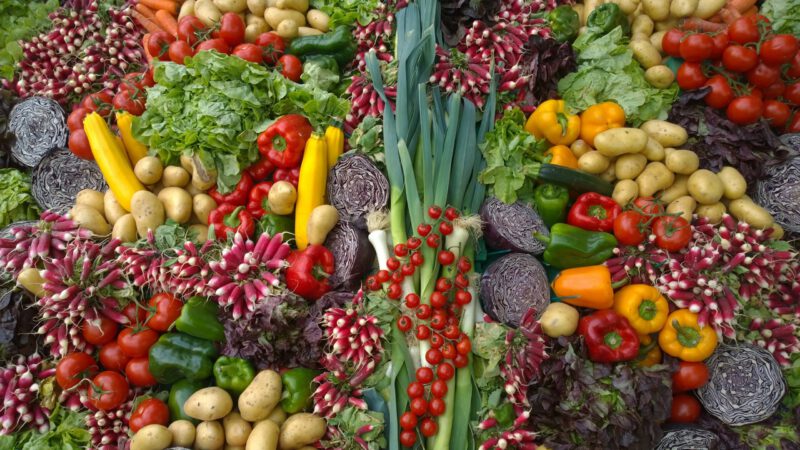Vegetarianism - a passing fad or a new lifestyle
- What does vegetarianism have to do with ecology?
- Room management
- Environmental pollution and increased waste production
The vegetarian diet has been known since ancient times. It was primarily practiced for ethical and religious reasons. Today, vegetarianism is becoming more popular every day, primarily for health, ethical, and moral reasons, but also due to increasing environmental awareness. Just look around you. We all know at least one person who is a vegetarian. Does our diet have an impact on the environment, and is vegetarianism a healthy and long-term solution, a new way of life?
What does vegetarianism have to do with ecology?
Animal products are associated with a zero-waste and less-waste lifestyle for many. The animal products industry is responsible for more than 20% of greenhouse gas emissions, which is more than transport—land, air, and sea combined. In just 40 years, global wildlife populations have declined by up to 60%. Today, they account for only 4% of all mammals in the world. Humans account for 36%, and livestock for 60%. Such a major change must therefore be of great importance for our planet in terms of:
- spatial development,
- Waste growth,
- water pollution,
- above-mentioned greenhouse gas emissions.
The sources of carbon dioxide emissions are:
- Transport of meat products to warehouses, shops and then to our homes,
- Transport and production of feed and fertilizers for animal feed,
- Electricity on farms,
- the animals that emit methane.
Room management
Meat consumption contributes to the destruction of the rainforest. Forests are being cleared to find space to raise animals and grow food for them, and wild fauna and flora are being irretrievably destroyed. Paradoxically, forests that naturally support the environment by cleansing it of carbon dioxide are being cleared because of the industries that produce most of it. It is estimated that 20% of the Amazon has disappeared in recent decades. The deforestation process is becoming more severe every year.
Environmental pollution and increased waste production
Animal husbandry and the production of feed for them consume enormous amounts of water. It is estimated that approximately 2,300 liters of water are needed to produce one hamburger. Furthermore, the animal products industry accounts for a large share of the plastic-packaged food market. This applies to both meat – films and trays – and dairy products – yogurt cups, cream, and milk cartons.
Considering the above aspects, today for many people a vegetarian lifestyle turns out to be the only correct and conscious way of life, caused not just by a passing fashion, compassion for animals that are often bred and killed in inhumane conditions. More and more people are choosing vegetarianism for ecological reasons. Does this mean that if we do not give up meat, we cannot live ecologically? Meat occupies a very high place in our culture - it is associated with prosperity, hospitality, and holidays. Therefore, if we find it difficult to completely abstain from it, like our grandmothers did, let's eat them from the holidays. Let it be meat from organic farms. We can also try to include vegan products in our menu, such as tofu cheese or vegan pates for sandwiches . Let's also remember that there are regions of the world where a vegetarian diet cannot be introduced.
THE PUBLISHER'S CHOICE
Dried plums 1 kg BIOGO
- €7,01
- €7,01
- Unit price
- / per
Dried White Mulberries 500 g ORGANIC
- €5,84
- €5,84
- Unit price
- / per
Almonds 1 kg BIOGO
- €11,69
- €11,69
- Unit price
- / per
Cranberries sweetened with apple juice organic 1 kg BIOGO
- €16,37
- €16,37
- Unit price
- / per
Dried dates 1 kg BIOGO
- €4,21
- €4,21
- Unit price
- / per
Unpeeled buckwheat groats 1 kg BIOGO
- €2,81
- €2,81
- Unit price
- / per
Walnuts 800 g BIOGO
- €8,65
- €8,65
- Unit price
- / per
Peeled sunflower seeds 1 kg BIOGO
- €3,04
- €3,04
- Unit price
- / per
PULLED ORGANIC SUNFLOWER SEEDS 1 KG BIOGO
- €4,44
- €4,44
- Unit price
- / per












































































































































